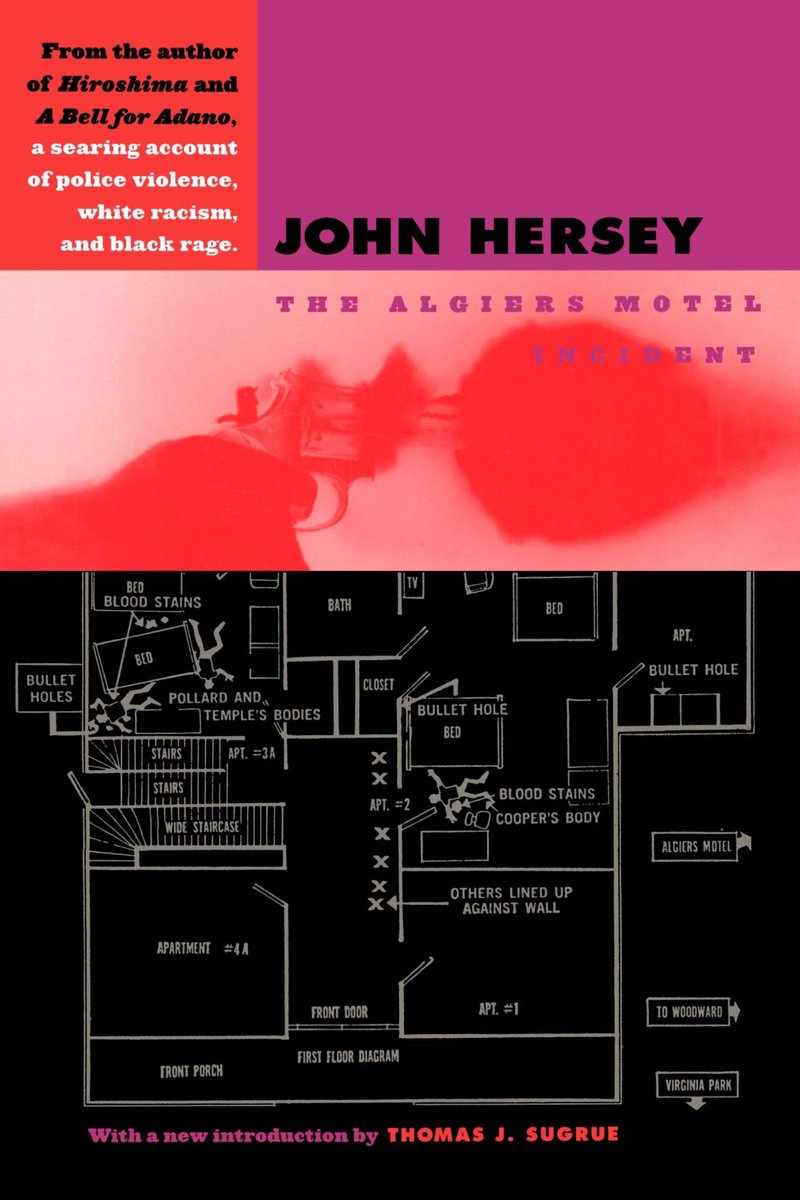I've been reading John Hersey's 1968 book the Algiers Motel Incident, about a police murder of 3 young Black men during the Detroit rebellion in 1967, and I was surprised at how clearly it illustrates the dangers of analogizing policing and war. Some thoughts...
At multiple points throughout the book, there are references to how police and news media talked about the rebellion as being like the US war in Vietnam. The key factor was the fear of Black snipers. The common claim was that snipers were just like the "Viet Cong."
Obviously, snipers are a terrifying factor for soldiers in war. But a good deal of scholarship at the time and since has debunked the claims that there was widespread sniping during the 60s urban rebellions (not saying it never happened).
Usually "sniping" was either the sound of ground-level shots ricocheting off buildings or it was the result of one outfit, like Nat. Guard, shooting at another, like municipal police. Or it was simply unrelated noise now interpreted as guerrilla attack, as at the Algiers Motel.
Incidentally, a relative of mine (now deceased) was a reporter in Newark, and he told a story about this. In his reporting, he often spoke to a source who lived in a high rise project. During the '67 uprising, he called her and asked her to tell him what she saw out the window.
This Black woman leaned out, holding the phone to her ear, to describe the scene, and a bullet crashed into the wall near her head. A cop or Nat. Guardsman shot at her when she leaned out! That told him all he needed to know about what was happening.
Anyway, what exactly unfolded at the Algiers Motel remains somewhat unclear, and the cops charged with murder were acquitted. But here's the point....
Cops heard what was most likely a starter's pistol fired as a bad (and inopportune) joke. Because the cops expected war, believed Black Detroit was becoming like South Vietnam, and anticipated sniper fire, they misread the situation.
They then rushed into the motel and killed three people, wounding others. There were no snipers. Thinking they were at war was not the only reason these cops killed unarmed young Black men, but it shaped and even precipitated the whole incident.
I'd suggest that whereas the common argument then was that b/c of sniping, it felt like cops were at war, in reality, cops thought they were at war, and were acculturated as such. Therefore, believing there were snipers attacking them, they acted accordingly, w/ anger & panic.
The research I did for Badges Without Borders led me to tally dozens of examples of this sort of war/Vietnam analogy from this era. Mostly, I focused on how this informed and shaped policy and police training. But it also was an everyday, vernacular feature of policing culture.
The effects of analogizing in this way were not always direct, causing specific behavior. Maybe it was more atmospheric. But when specific behaviors followed from this way of thinking, they could be terrible, with long-lasting consequences. /end

 Read on Twitter
Read on Twitter


